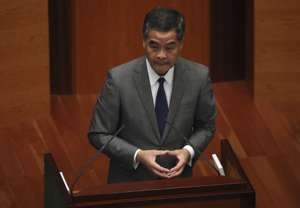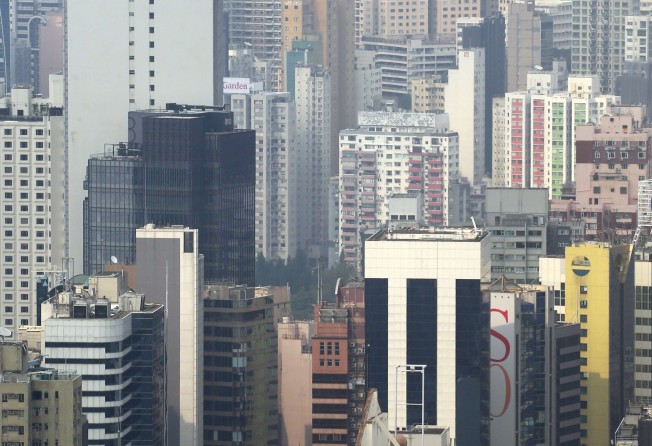
Six things legislators should do to reverse the deepening inequality problem
Resentments against elites sit at the heart of our new Legco, and will quickly fester if government doesn’t listen to the concerns of the young and the poor

As our young new Legislators sharpen weapons for the pitched warfare they expect will be engaged when our next Legco session begins, there are some obviously sensible things CY Leung’s team can do to lower temperature and lay foundations for a more-or-less civilised coexistence. Most obvious of course would be to listen. But beyond that, much good could be done with a clearly focused assault on inequality.
As I have already written three times so far this year, the deepening inequality that has been marked worldwide, but nowhere more than Hong Kong, has poisoned democratic politics in all corners of the globe – from the US, to the UK, to the Philippines. The fact that the world’s top-earning 1 per cent - a total of 70 million families that earn US$71,000 or more a year – have walked away with most of the economic gains delivered by the growth of the past three decades – has created deep resentment across the world’s middle classes, who have felt income stagnation and job uncertainty throughout this long period and see no future prospect of improvement.

These resentments against our elites sit at the heart of our new Legco, and will quickly fester if our Hong Kong government is perceived to listen more carefully to these business and social elites than to the anxieties and concerns of the young and the poor.
It does not help that Hong Kong is by far the most unequal society in Asia. Gini coefficients that reliably measure inequality have not been calculated in Hong Kong since 2011, with a new set due in the middle of next year, but the fact that Hong Kong was then the world’s 10th most unequal economy, bunched up with Haiti and a cluster of awfully impoverished African states like Lesotho, Botswana, Zambia and South Africa, reflects badly. More recent household income data tell the same story: 30.3 per cent of Hong Kong households struggle on less than HK$15,000 a month, while our top 22 per cent earn over HK$50,000 a month (which puts them in the world’s top 1 per cent of income earners)
Allowing developers to offer 160sq ft shoeboxes is a crime that regulators in Hong Kong should never have allowed to happen
It is of course one thing to identify the inequality, and warn of the political harm it is inflicting on our community, and quite another to deliver proposals that our administration could deliver as a way of reducing stress and division. So it was exciting last week to gather with a small group of people much brighter than me to address precisely this: what should we do? Some of the conclusions were obvious, but others were fascinatingly counterintuitive:
•Inclusive economic growth: stimulating economic growth would calm many of the community’s frayed nerves, in particular if it underpinned higher salaries and more stable employment. If incomes grow at 3 per cent a year, they double in 25 years – a single generation. If they grow at 2 per cent, it takes 35 years to double. And at 1 per cent, it takes 70 years.
•Resist the temptation to punish the rich: Think death duties and capital gains tax. Not only would such “witch hunt” strategies probably backfire (wealthy people are quite adept at moving their wealth around to “manage” tax liabilities), but they send a bad message. Surely we should not discourage and punish people from striving to get rich by working hard – rather, we should make it easier for more in our community to get rich by working hard. Having said this, it is politically realistic to expect that our egregiously rich should expect to be seen to feel some of the pain that so many of our middle classes have been feeling for most of the past decade. Think VAT or GST or “sin taxes” that target luxury spending. And guidelines to companies’ remuneration committees on appropriate top-executive salaries would help. It is hard to believe that an S&P top 500 CEO in the US can justify a salary on average 335 times higher than the median US employee. What miraculous talent can possibly such disproportionate reward. The challenge is “to civilise capitalism”.
•Invest heavily in “essential infrastructure”: this means equal access to excellent education, and excellent health care. It also means an excellent public transport system that enables those without private cars to move safely and quickly about their lives. Such policies are inevitably “redistributive”, but justifiably so if we want our population to participate fully and successfully in our economy, and to share in the gains of growth.
•Keep the economy open: not just to new technologies and innovation, but to international competition in the many services that drive efficiency through the economy. This should also include openness to international job mobility - a powerful win-win: exporting economies reduce unemployment, benefit from remittance flows, and eventually see the return of skilled workers who can contribute to future growth. Importing economies eliminate skills shortages and tackle job cartels which otherwise hurt competitiveness by unsustainably lifting business costs.
•Facilitate cross-boundary movement: many of the 1.3 million people, mainly young women, who have since 1995 migrated into Hong Kong to marry local men and raise families are likely in the coming decade to return to homes and families inside China, in particular if disincentives to return (like no access to Hong Kong hospitals) are removed. This will not only reduce those at the poorest levels of Hong Kong society who have since arrival always struggled to keep their heads above water in Hong Kong’s highly specialised city economy, but would reduce pressure on housing. If at the same time we stay open to skilled professionals from the mainland, we inflict a two-pronged attack on income inequality.
•Access to homes: last, but perhaps most important, is to make homes affordable again. This is not necessarily about ownership, but about stable access to somewhere affordable that can be imagined as a long term family home. Allowing developers to offer 160sq ft shoeboxes is a crime that regulators in Hong Kong should never have allowed to happen.
In some of these areas, the Hong Kong government has already moved creditably, but much more must be done if the “localist” anxieties being articulated from the heart of the new Legco are to be addressed.
David Dodwell is Executive Director of the Hong Kong-APEC Trade Policy Group